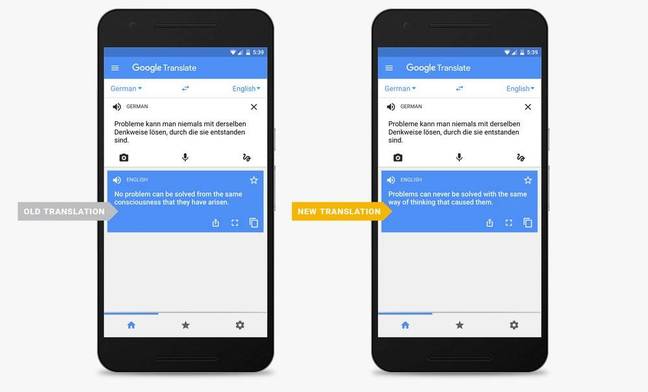In science fiction, artificial intelligence (AI) systems are often bent on overthrowing human civilization, or they are benevolent caretakers of our species. In reality, machine-learning is already with us, evolving out of search engines like Google and seeping into our everyday lives without much fanfare.
To highlight exactly how AI is debuting in a less-than-Hollywood (but still quite impactful) style, Business News Daily spoke with six companies rolling out AI products that will recalibrate and streamline everyday business operations. From conducting marketing research to monitoring for nefarious activity on stock exchanges, these systems can do it all.
[See Related Story:AI Comes to Work: How Artificial Intelligence Will Transform Business]
SparkCognition – Monitoring the London Stock Exchange
In stock exchanges around the world, plenty of people are trying to tilt the table in their favor to ensure their investments pay off. Monitoring and policing this sort of activity is a key part of maintaining investors' faith in the stock exchange, but traditional methods have proved inadequate to address all the malfeasance that's out there.
"Markets can be manipulated and, unfortunately, humans are constantly trying to come up with new ways to do so," Amir Husain, founder and CEO of
SparkCognition, said. "The idea behind AI-based monitoring is to a) know about all the existing methods of market manipulation and guard against those and b) to learn about new forms of market manipulation and alert analysts to potential abuse."
Husain's team believes their system will beef up the monitoring power of regulators who oversee exchanges without inundating them with false positives and constant alerts. However, the system is designed to quickly catch on to both old and new techniques of gaming the market. Husain said that SparkCognition's AI could have even prevented larger wrongdoings, like
the London Interbank Offer Rate (LIBOR) rigging scandal.
"Better oversight and protection to prevent manipulation helps everyone, including the institution in whose name a lone actor may be engaging in illegal and improper trading practices," Husain said. "If you are a business owner … [of a] publicly traded [company], AI-based surveillance systems will protect you by preventing scenarios where your stock is used in a scam. If you are an average investor, these systems will give you more reason to trust the value of your portfolio."
Equals3 – Lucy, market research companion
Proper analysis of keyword trends, algorithmic changes, point-of-sale data and so on is key to marketing success, but poring over the ever-increasing mountain of data is time-consuming and expensive. To help improve the efficiency of the process,
Equals3 developed their product known as Lucy, a marketing research companion powered in part by the famous Jeopardy! champ,
IBM Watson.
Incorporating a blend of Watson's services and Equals3's own services developed in-house, Lucy is a centralized AI that can pull up exactly the information an analyst requires. (Think Alexa on steroids and with a deep fixation on marketing and advertising.)
"Lucy is a combination of our own stuff and some amazing services from IBM's Watson to create this unique solution that brings together all the owned and licensed content, structured and unstructured, to our customers," Scott Litman, managing partner at Equals3, said. "You can ask her, 'How much did BMW spend month by month?' Lucy knows. 'What was the daily web traffic for
Ford.com?' Lucy knows. I can ask her for keyword research and she knows."
The initial license for Lucy costs $50,000 for a year and allows for five users to operate within one brand or marketing category. Lucy comes with a basic set of knowledge and understanding from the get-go – U.S. Census Data, website analytics, social media management, keyword research – but will learn and adapt to the specific uses for which it is applied. For Litman, it appears inevitable that companions like Lucy will become the norm very shortly, and Equals3 wanted to become an early option in the marketing space.
"We truly believe AI is going to drive a competitive advantage and those that adopt early will win out over those that don't," Litman said.
Daisy Intelligence – Decision-making assistance
Try as we might, humans often make poor decisions. Machines, however, excel at examining vast sets of data and research to determine, quantifiably, the best course of action. That's the idea behind
Daisy Intelligence'sdecision-making assistant. Primarily geared toward retail and insurance industry applications, this SaaS product offers itemized lists of decisions, ranging from the most optimal course of action to the least.
"You send us your raw data, our machine analyzes it and spits out decisions," Gary Saarenvirta, CEO of Daisy Intelligence, told Business News Daily. "We don't change your process at all, except that now you have a new piece of information to consider … It's about making smarter decisions; these are all mathematical quantitative things that computers do better than people. If you can make smarter decisions it can drive your profitability."
For example, Daisy Intelligence can determine what deals a retailer should offer, or what the featured product should be during the current ad campaign. Saarenvirta claims Daisy could double retailers' profit-margins if used regularly. In insurance, Daisy operates to detect fraud and provide underwriting recommendations. By identifying suspicious claims, or those that are vastly different than the average claim of its type, the machine signals a human to investigate further.
"We're saving them time and giving them new insight they've never had before," Saarenvirta said. "Our machine, unlike human beings that get tired and bored, puts as much effort into the 199th item as the first item. Daisy doesn't get tired [or] bored."
Chime – AI for real estate
Any line of work that operates strongly on referrals can be difficult to grow; converting the lead into actual business is never a given.
Chime is aiming to use machine-learning to connect real estate agents with leads that are more likely to pay off, and then streamline the transaction paperwork afterward.
The idea behind Chime was to "bring the real estate industry into the next generation," Matt Murphy, co-founder of the company, said. Between scouring the web for information while developing the leads and then triggering automated ad campaigns to make first contact with prospective buyers or sellers, Chime attempts to help agents take the first steps toward cultivating a promising lead.
"We created an intelligent lead-routing system, so if someone comes in looking in a certain area, at a certain income range, with certain housing requirements, we can send that lead to the appropriate agent," Murphy told Business News Daily. "If that agent doesn't take action, it will just round-robin it to someone else and [notify the manager]. There's a lot of intelligence there to optimize workflows in the agents' lives to help increase productivity and minimize time spent on mundane tasks."
Chime has been deployed for only several months, but there are already hundreds of clients using the system, Murphy said. So far, the feedback has been positive: conversions on Chime leads are significantly higher than the industry average.
"Top agents on the platform are converting at 8 to 9 percent, [which] … shows the machine-learning and intelligence is working to direct higher quality leads," Murphy said. "Of course, it takes agents to actually develop the relationship, but the combination of a great agent and great technology shows that it's working."
Restless Bandit – Human resources and hiring assistance
Have you ever brought a candidate in for an interview and then realized they were a terrible fit?
Restless Bandit is a SaaS product that automates the candidate-screening process and even reaches out to qualified people for vacant positions. By mining the company's existing talent pool, Restless Bandit aims to reduce the work an organization needs to do before bringing a qualified candidate in for a
face-to- face interview.
"It will make recruiters more efficient," Steve Goodman, co-founder and CEO of Restless Bandit, said. "They won't have to weed through the 80 percent of candidates that are clearly not a good fit. It will also increase quality [of the candidates] because the only candidates we reach out to are at least minimally qualified."
Using artificial intelligence, Restless Bandit finds, matches and ranks qualified candidates against the open positions in your organization. Recruiters and hiring managers are sent daily lists of matches and rankings so they can determine with whom they'd like to follow up for each open position. Goodman says the system will not only save your recruitment staff time and enhance their productivity, but will help deliver higher quality talent to your company as well. A subscription to Restless Bandit costs between $25,000 to $100,000.
"The human evaluator brings an unconscious bias to their work," Goodman said. "These algorithms look at the entire resume and job description as part of a larger model, and then tease out fits based on career arc, title climbing, industry associations, competitor employers, schools and degrees that really matter for the job, all while never bringing a job seeker's ethnicity, name, religion or location into play to determine value."
OutsideIQ – Automated regulatory compliance
The amount of time and money spent on filing the proper reports and paperwork with the appropriate levels of government can seem insurmountable and, perhaps, even prohibitive to many companies. However, failing to do so can lead to untold amounts in fines and legal fees, making regulatory compliance a necessary evil. But
OutsideIQ is aiming to change that by automating the entire compliance process through artificial intelligence.
"We have clients who have fallen further and further behind on the regulatory demands they're facing, and we have clients who have tried to do it manually with armies of people," Dan Adamson, CEO and founder of Outside IQ, told Business News Daily. "It's a great relief to them that this system can make it doable in an efficient manner."
OutsideIQ's major products includes Due Diligence IQ (DDIQ), which automates due-diligence-reporting requirements for both clients and corporations, as well as use in anti-bribery and anti-corruption systems, Adamson said. InsuranceIQ, another product developed by OutsideIQ, is trained by commercial underwriters to look for the same things humans do when assessing risk; it then determines the appropriate level of coverage and offers a recommendation, and it's auditable, so humans can always confirm its methods.
"We need the added context that AI can provide, but we have to be very open box; we have to explain everything that's been done with our system so regulators can understand, so banks can be confident with how it's being used," Adamson said. "Broadly, the exciting part is we're seeing actual commercialization of AI now. There's a real opportunity for AI to change the dynamics of humanity; it's very exciting and it's very humbling."






